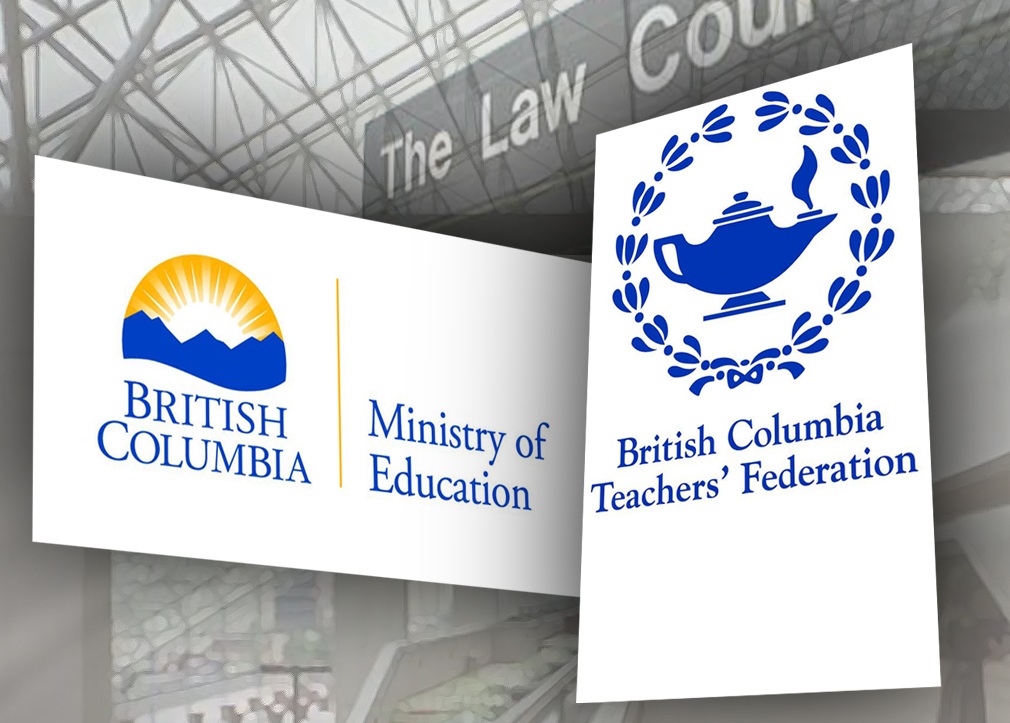VICTORIA – How much power does – or should – an elected government have when it comes to changing a collective agreement with a public sector union?

That question is at the heart of a landmark court case that will reach another milestone tomorrow when the B.C. Court of Appeal rules whether to uphold a previous court ruling that said the B.C. government did not have the power to arbitrarily change the language in its contract with the B.C. Teachers Federation (BCTF).
Forget talk about class sizes, learning conditions and other educational issues. Although the language that was stripped from the contract did indeed deal with class size, that’s not what this case is about.
It’s about bargaining rights, and how far they can go.
When the B.C. Liberal government was first elected in 2001, it “inherited” a contract with the BCTF that the previous NDP government had negotiated. It contained strong language that strictly governed class size, and therefore how many teachers were required to be hired.
The new government felt the language was too rigid and also very expensive, so it arbitrarily removed it, thus lowering the costs associated with hiring teachers. The BCTF sued, and won on two occasions, with the latest ruling by the B.C. Supreme Court putting back into the contract the language that had arbitrarily been taken out.
And here we are today.
There are several likely scenarios to be contained in the Court of Appeal’s judgment.
First of all, it could totally uphold the Supreme Court ruling, which would put the 2002 language back into the contract. The current collective agreement — negotiated last fall — stipulates that if this happens, the two sides then “re-open” that part of the contract and bargain this issue with the starting point being the old language.
In other words, nothing would change in the short-term. But depending on how those new negotiations go, there could be significant changes affecting class size and teacher hiring down the road.
This kind of ruling would be truly landmark. It would essentially lessen the supremacy of parliament, since it would shackle a government’s ability to legislate — in this case, to legislate the terms of a collective agreement even at the point of an impasse in bargaining.
A second scenario would see the appellate court agree with the government’s position, and overturn the B.C. Supreme Court ruling in its entirety. This would require the high court to rule the government did not violate the BCTF’s constitutional rights when it arbitrarily removed the language, and to overturn the previous judge’s finding of bad faith bargaining on the part of the government.
A third scenario could combine elements of the previous two.
For example, the court could rule that the government did indeed negotiate in bad faith, but nevertheless it retains the ultimate power to legislate — but only after it demonstrates good faith bargaining. So the two sides could reopen the contract to bargain the class size issue but eventually if they can’t reach an agreement the government — again, after demonstrating that it was actually willing to negotiate — could legislate the terms.
There are a couple of side issues in this case. One (grievances arising from old language being restored in the contract) will be dealt with by the Court of Appeal, but it will have no real impact since the BCTF and the government reached a deal on that subject as part of the new contract.
Another issue deals with the confidentiality of cabinet documents that were entered into evidence as part of the case, and whether they should be made public, which is what the BCTF is hoping for.
But the big issue is bargaining rights, and whether a contract lasts forever.
Other provinces and public sector unions will be watching this court ruling with great interest and nervousness tomorrow morning at 10 a.m. when the ruling is made public.
But even then, that doesn’t mean this long running war is over. If one side in this fight is completely shut out by the court of appeal, it will undoubtedly appeal to the Supreme Court of Canada.
There’s a lot at stake here for both sides. And that means the final, ultimate ruling may not actually come down until late next year.



Comments